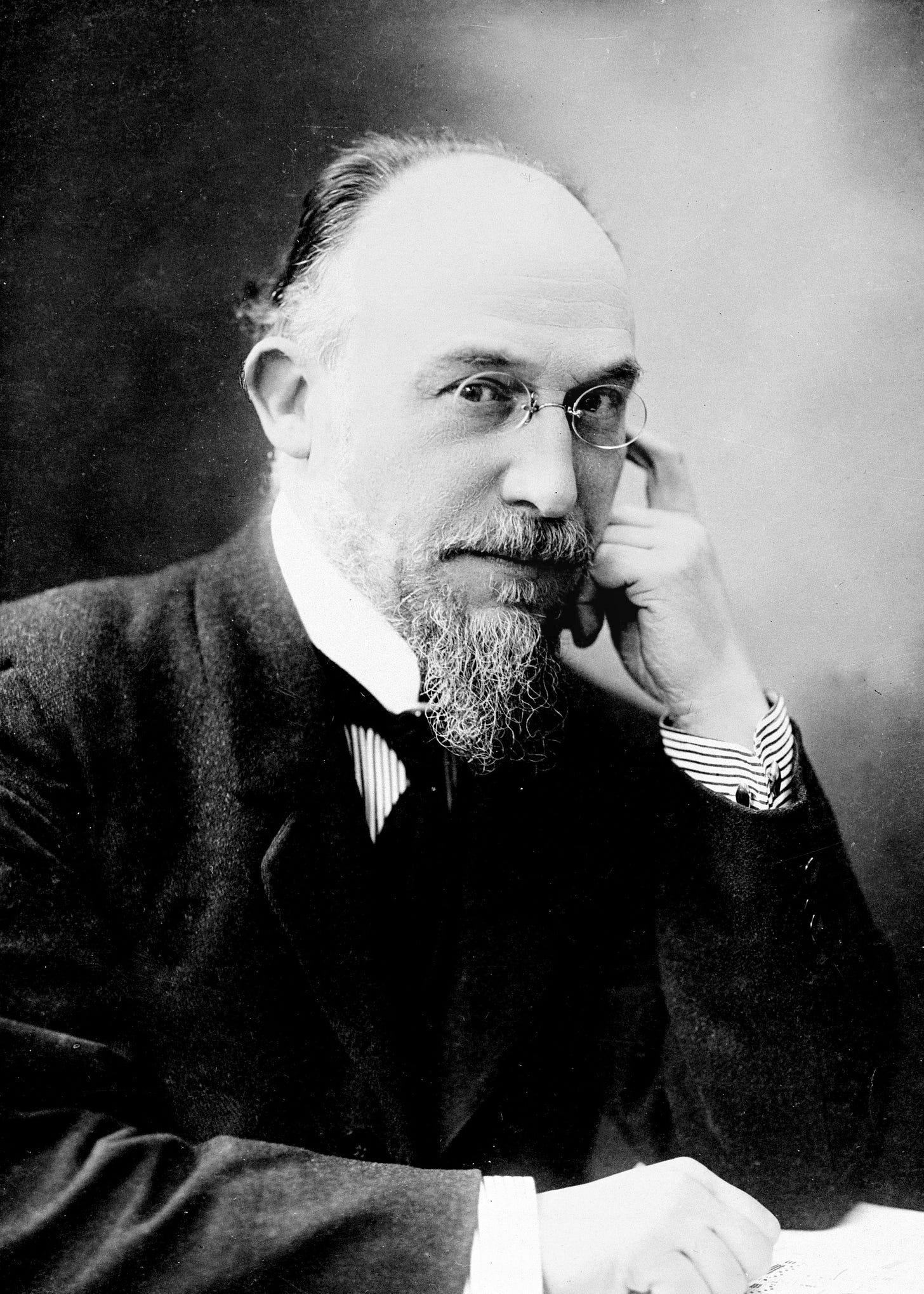Erik Satie: “An artist must regulate his life”
Presenting the composer’s “precise daily schedule” on this 155th anniversary of his birth
Welcome to the latest issue of Subtle Maneuvers. Previously: Alison Bechdel’s very labor-intensive cartooning process.
Erik Satie (1866–1925)
The brilliant and eccentric French composer was born on this day in 1866. In honor of that anniversary, here is Satie’s “A Musician’s Day,” first published in 1913:
A MUSICIAN’S DAY
An artist must regulate his life. Here is my precise daily schedule. I rise at 7:18, am inspired from 10:30 to 11:47. I lunch at 12:11 and leave the table at 12:14. A healthy horse-back ride on my property from 1:19 to 2:35. Another round of inspiration from 3:12 to 4:07.
From 5:00 to 6:47 various occupations (fencing, reflection, immobility, visits, contemplation, dexterity, swimming, etc.).
Dinner is served at 7:16 and finished at 7:20. Afterward from 8:09 to 9:59 symphonic readings out loud.
I go to bed regularly at 10:37. Once a week I wake up with a start at 3:14 A.M. (Tuesdays.)
I eat only white foods: eggs, sugar, shredded bones, the fat of dead animals, rice, turnips, sausages in camphor, pastry, cheese (the white varieties), cotton salad, and certain kinds of fish (skinned).
I boil my wine and drink it cold mixed with fuchsia juice. I have a good appetite but never talk when eating for fear of strangling.
I breathe carefully (a little at a time) and dance very rarely. When walking I hold my sides and look steadily behind me.
Being of serious demeanor, it is unintentional when I laugh. I always apologize very affably.
I sleep with only one eye closed; I sleep very hard. My bed is round with a hole in it for my head to go through. Every hour a servant takes my temperature and gives me another.
For a long time I have subscribed to a fashion magazine. I wear a white cap, white socks, and a white vest.
My doctor has always told me to smoke. He even explains himself: “Smoke, my friend. Otherwise someone else will smoke in your place.”
This is, obviously, a satirical take on the brilliant-person’s-daily-routine genre; even so, I think Satie ends up revealing a good deal about himself here. As Roger Shattuck writes in his landmark book The Banquet Years—where I found the above translation of “A Musician’s Day”—Satie had a talent for “finding huge enjoyment in the very absurdity of living.” A talent we should probably all work on cultivating these days.
SATIE REMEMBERED
In Daily Rituals, I wrote a mini-biography of Satie’s actual day-to-day routine. My chief source was the book Satie Remembered, a trove of biographical miscellany for the composer. Here are some of the quotes that leaped out at me, not all of which made it into my published mini-biography.
Keep reading with a 7-day free trial
Subscribe to Subtle Maneuvers to keep reading this post and get 7 days of free access to the full post archives.



